The 1979/80 season saw Liverpool faced with another fight at the top as they looked to defend their league title for a historic third time in club history. Jeff Goulding tells the story.
It’s August 1979, Scousers are piling into cinemas to see Roger Moore reprise his role as James Bond for the fourth time, in Moonraker, an evil Ice Queen has been elected Prime Minister of the UK and a technician’s strike at ITV has reduced Britain’s television output to two channels. Brian Clough’s Nottingham Forest are champions of Europe and Bob Paisley‘s Reds are Kings of England.
The stage is set for the Reds to do battle in another epic campaign.
The singles charts feature hits from the Boomtown Rats, The Police, Supertramp and Tubeway Army, and the country lapped up TV shows like Tales of the Unexpected, Blankety Blank, Minder and Fawlty Towers.
Liverpool opened the season at Wembley with a 3-1 thumping of Arsenal in the Charity Shield in front of 92,000. Goals from Terry McDermott (2) and Kenny Dalglish put the Reds 3-0 up and an 88th-minute consolation from Alan Sunderland could not prevent Paisley from taking his fourth Shield in six years.
There had seemed an air of inevitability about it all, and the press were full of stories about how the pretenders to Liverpool’s crown faced an uphill struggle. Former Red, Gordon Milne, now the manager of Coventry, would later declare that the league consisted of Liverpool and Nottingham Forest and 20 also-rans. His team had been on the receiving end of 4-0 drubbings at the hands of Paisley and Clough after all.
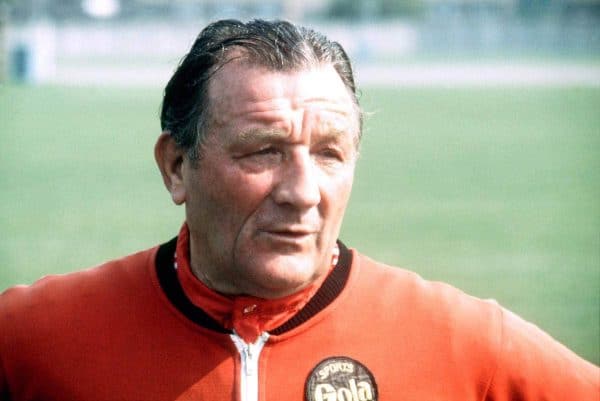
Manchester United were spending or planning to spend upwards of £15 million to compete with the big boys, while Everton‘s Gordon Lee was threatening to “play the kids” after star striker Bob Latchford asked for a transfer. At Aston Villa, manager Ron Saunders had asked his board to transfer list John Gidman and Andy Gray. Gidman had reportedly demanded £600 per week and a £10k loyalty bonus, walking out when it was turned down. Gray had put in numerous transfer requests.
Liverpool, meanwhile, trundled on inconspicuously. They had signed Israeli international Avi Cohen and would add youngster Ronnie Whelan from Irish club Home Farm, while club legend and former captain, Emlyn Hughes, quietly left for Wolves for a fee of £90,000.
What lay ahead was a gruelling season, in which Liverpool played 60 games, winning 35 of them and losing just 10.
They would make it to the semi-finals of the League Cup and FA Cup before going out to Forest in the former and Arsenal in the latter, and they would for the second time in successive seasons exit the European Cup at the first time of asking, losing 4-2 on aggregate to Soviet champions, Dynamo Tbilisi.
However, with the league their bread and butter, Paisley’s men set about retaining the league title for the third time in the club’s history.
They would do so thanks largely to the efforts of something of a forgotten goal machine, David Johnson. The Scouser had played for Everton and Ipswich before joining the Reds, and sporting a trademark mop of black hair and moustache, he would plunder 27 goals in 54 appearances in all competitions that season, 21 of them in the league. The Reds would also rely on Dalglish, who chipped in with 23, and David Fairclough who managed an incredible 13 goals in 26 appearances, many from the bench.
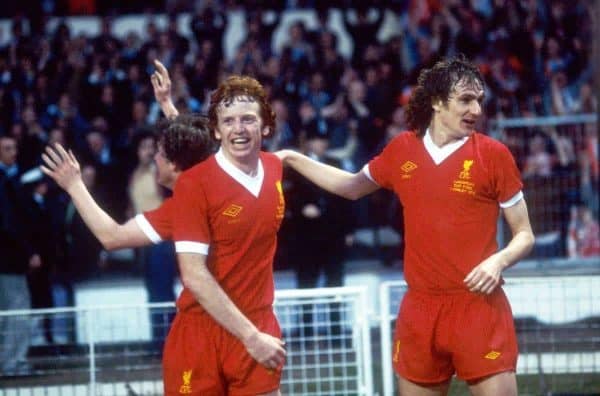
Liverpool still boasted the likes of Ray Kennedy, Terry McDermott and Jimmy Case in midfield, and Graeme Souness had joined a season earlier from Middlesbrough. However, Steve Heighway was entering the twilight of his Anfield career. At 29, he would manage just 11 games in the 1979/80 season.
Making his way from the Central League was a 20-year-old Sammy Lee who also featured 11 times, his breakout season would come in 1980/81, when he would turn out for the Reds on 55 occasions.
Three of Liverpool’s squad were ever-presents during the 1979/80 campaign, Kenny Dalglish, Phil Neal and Phil Thompson. Souness and Clemence, meanwhile, would feature in 59 of the 60 games. Paisley could rely on the spine of his team who showed remarkable consistency throughout the campaign.
Their fitness meant that they could often outlast teams and would score 66 of their 111 goals in the second half of games, with 24 of them in the last 15 minutes. Meanwhile, although they couldn’t repeat the feats of the previous season during which they had conceded just 16 goals, they still kept 19 clean sheets and not even injuries to Alan Hansen could derail them.
However, the season would get off to an unwelcome start with the Reds recording their first goalless game at home for 15 months. The 0-0 draw with Bolton Wanderers owed much to the visitors dogged defending and Liverpool’s wastefulness in front of goal.
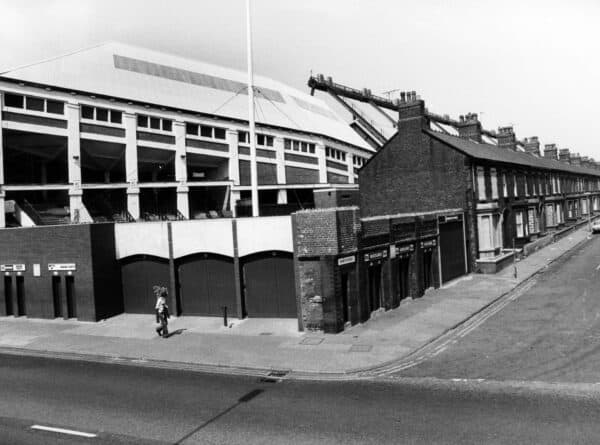
The press, using the opportunity of Liverpool’s new Japanese shirt sponsorship from electrical manufacturer Hitachi, would write headlines about Red Samurais laying siege but ultimately drawing a blank. Paisley would even sacrifice defender Phil Neal after 27 minutes and threw on an attacker in Steve Heighway to no avail.
A crowd of almost 46,000, with the Kop seemingly split down the middle in terms of their allegiance to Glasgow’s football giants, and frequently breaking into chants of Ran-gers – Cel-tic, would leave frustrated after a game played in the pouring rain on a slippery pitch. Much to his ire, Dalglish would be waved offside several times, and felt he had been denied a penalty. Then, when it looked like the deadlock was broken, the goal was ruled out for offside in what was for the time remarkable circumstances.
Today, we’re used to celebrating goals only to see them belatedly ruled out for some VAR inspired infraction. However, imagine the roars of disapproval as the players lined up around the centre circle for the restart, the Kop having celebrated jubilantly their team’s breakthrough, only for Bolton protests to result in a hurried conversation between the referee and linesman and the goal being chalked off for offside.
The result would irk Paisley, and after his team beat Ron Atkinson’s West Brom 3-1, he would aim a dig at Wanderers by praising Atkinson for “trying to win the league instead of playing it safe.” Anyone watching how self-styled “Big Ron” played into Liverpool’s hands by attempting to attack the Reds at Anfield would probably feel that playing it safe was the better tactic.
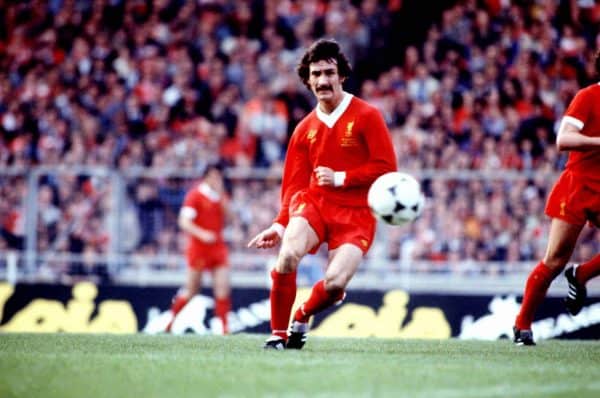
Liverpool’s movement and passing in that game would, according to the newspapers, approach “Brazilian perfection”. However, Bob, forever a tough taskmaster, would moan about the sloppy nature of West Brom‘s consolation goal.
Early Inconsistency
The Reds then said farewell to summer with a goalless draw at Tranmere Rovers in a second round, first-leg tie in the League Cup, before travelling to the Dell two days later. Liverpool, without Hansen and with Colin Irwin standing in, looked sloppy at the back, and though Irwin and Johnson got on the scoresheet, they slumped to a 3-2 defeat.
In a mark of their early-season inconsistency, Liverpool then went on to thump both Tranmere and Coventry 4-0 in successive games at Anfield, before being held by both Leeds United and Norwich. The draw at Elland Road had been particularly frustrating as McDermott had put the Reds 1-0 up in the 81st minute, only to see United level six minutes later.
Such was the apparent malaise that a 2-1 home victory over Tbilisi in the first leg of the European Cup did little to give Kopites or journalists the confidence that their team could advance after the second leg in the Soviet Union. Their trepidation would prove well-founded when weeks later a supremely well organised Tbilisi side thumped the Reds 3-0 on a rain-sodden pitch in the Georgian capital.
Paisley would be glad to see the back of September after his side succumbed to a 1-0 defeat to Clough’s Forest at the City Ground. Neither side covered themselves in glory, however, with one newspaper headline describing the encounter as “Listless sparring among the heavyweights.” The Reds sat a miserable ninth, while Forest were in third place. Topping the table were Crystal Palace and big-spending Manchester United.
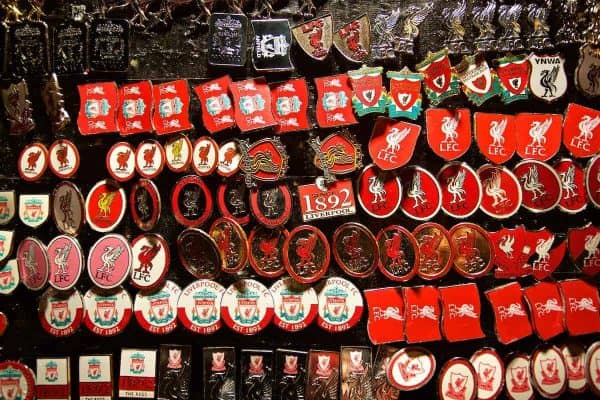
In the news, the infamous Yorkshire Ripper had claimed his 12th victim, and in football, Manchester City and Wolves duked it out for the British transfer fee record. City paid £1.45m for Wolves midfielder Steve Daley. The Midlanders promptly went out and spent just under £1.5m on Aston Villa‘s wantaway striker, Andy Gray, three days later. Wolves and Villa finished sixth and seventh respectively.
October brought some improvement and continued progress in the League Cup. Liverpool plundered four goals without reply in games against Bristol City, Manchester City and beat big spenders Wolves 3-0 at home at the beginning of November. However, the pick of the games during this spell was a tumultuous derby at Anfield on October 20. The game would end 2-2 and with both sides down to ten men.
With the game deadlocked at 2-2 in the 70th minute, neither side was taking any prisoners. A Mick Lyons own goal had put the Reds in front after eight minutes before Brian Kidd levelled 11 minutes later. The Reds were in front again 10 minutes into the second half, but Andy King equalised for the Blues in the 67th minute. Then all hell let loose.
In the 70th minute, Garry Stanley went in really hard on David Johnson and a huge brawl broke out. McDermott had lost his head and went for Everton‘s Stanley. The pair would both be sent off. The Liverpool player would later recall:
“I made contact with Garry’s teeth – or vice versa. I’ve still got the scar on my hand today and the referee sent us both off. The irony was that Garry and I are good friends and we often used to go out for a drink together. That plus the fact that we were both just about the two softest players on the park. I remember sitting in the bath and laughing when I thought of all those hard men still running about out there, while us two softies had been sent off. I think it was for dropping our handbags.”
Christmas Cheer
By the time Christmas came along, Liverpool had hit first gear and were in cruise control. They entered the 1980s on the back of an 11 game unbeaten run and had been top of the table since December 8. Nobody could shift them from the top spot for the rest of the season, no matter how much money they spent.
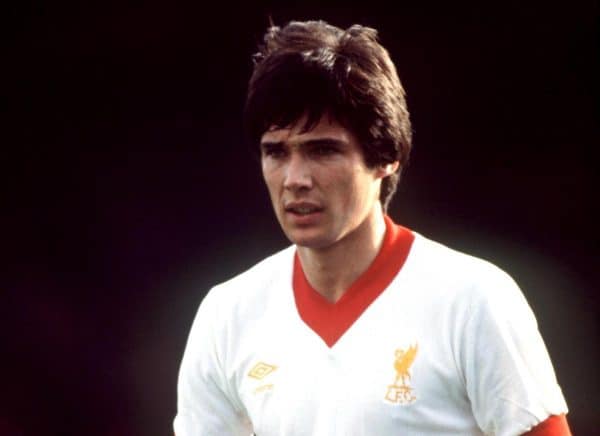
The Reds had scored three or more in eight of those games during an epic assault on the summit, and they would crown it with a 2-0 Boxing Day victory over Dave Sexton’s Manchester United at Anfield. A festive crowd of over 51,000 packed into the ground were no doubt delighted as Alan Hansen put the Reds in front after just 15 minutes.
United were Liverpool’s closest challengers in the league, but after Johnson had sealed the win with an 85th-minute strike to send a delirious Kop wild and then off to the pub, one Guardian journalist described the difference between first and second place in the division as the difference between “telepathy and the pony express,” before concluding:
“So Liverpool ended the decade with the magnificent record of having been beaten only 13 times at Anfield in the 1970s. United have reason to be disappointed with their afternoon. But perhaps it was too much to expect two earthquakes in the same day.”
The final game of the decade, away to West Brom, was a formality, with Liverpool running out 2-0 winners. Out of Europe, they may have been, but the Reds were sailing towards their 12th league title, still in the League Cup and with a home FA Cup tie against Grimsby Town to come.
Grimsby had just been promoted to the Second Division, and Liverpool were expected to win. The result was no surprise, in the end. Liverpool won 5-0 thanks to a Johnson hattrick and goals from Souness and Case. However, according to the Reds’ prolific striker, Johnson, the scoreline didn’t tell the whole story:
“Grimsby were far the better team for about half an hour. There’s no doubt about that. They brought tremendous support and had us on the run for a long uncomfortable period.”
The Forest Rivalry
The Reds then faced two games against arch-rivals Nottingham Forest in the space of four days. The first came in the League Cup semi-final first leg on January 22, and the next was in the fourth round of the FA Cup four days later. Both games were played at the City Ground with the Reds losing the first by a single goal and winning the other 2-0.
Now safely through to the fifth round of the FA Cup, Liverpool supporters would have relished the prospect of bringing Clough’s men back to Anfield for the second leg of the League Cup semi-final and would have been confident of a place in the final. A single goal wasn’t too daunting a deficit, especially for free-scoring Liverpool.
Sadly, the game didn’t go to the script and Forest’s John Robertson converted a penalty to put Liverpool two down in the tie overall and chasing the game. Paisley had taken the decision to start with Fairclough on the bench, a decision that had become depressingly familiar to the striker. Fairclough would have been especially disappointed as he had scored a hat-trick in a 5-3 victory over Norwich City three days earlier.
He would belatedly replace Alan Kennedy and grabbed Liverpool’s equaliser in the 89th minute. It was all too late though, and the Reds were out of the cup. Wembley would have to wait.
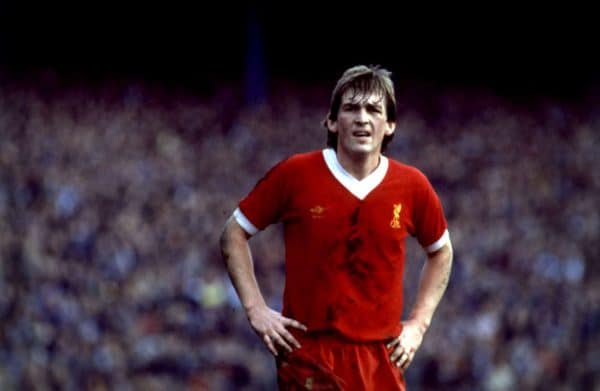
Their next best chance was in the FA Cup, of course, and after dispatching Bury and Tottenham, they would face Arsenal in a titanic battle in their second semi-final of the season. There was little to separate the teams and the game would go to an exhausting third replay, ending in ultimate disappointment as Liverpool lost 1-0 at Highfield Road.
Title Tussle
By now though, the Reds were locked in a tussle for the championship with United. After a goalless draw with Terry Venables’ Crystal Palace at Selhurst Park in late April, both United and Liverpool were on 58 points, though Paisley’s men had a vastly superior goal difference and a game in hand. The title was in their own hands.
The year 1980 had begun with scandal in football, with United’s Chairman, Louis Edwards, accused in a World in Action documentary of making illegal payments to some of the club’s younger players and shady business dealings. The economy continued to reel from the Conservative government’s economic policies, which led to job cuts and strike action by steelworkers.
Unemployment now stood at a two-year high of 1.5 million, and in Bristol rioting broke out in protest at a police raid on a cafe in the St Pauls area of the city. It resulted in 130 arrests and 19 police officers hospitalised along with six civilians. The simmering tensions that would eventually boil over in towns and cities across the country, including Liverpool, throughout the 1980s had already become evident.
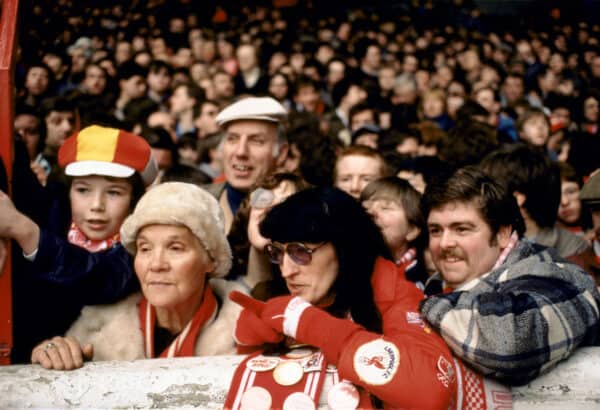
The Reds had just two games remaining, and next up was the visit of Aston Villa on Saturday, May 3, 1980. With the chance to see Liverpool crowned champions for the second year running, a crowd of 51,541 crammed into Anfield.
It was a procession, with the Reds running out 4-1 victors in a game that saw two own goals for each side and a brace by Johnson, including a rare left-footed shot that cannoned off the post and went in. Avi Cohen scored in his own net, before redeeming himself with a strike in the 50th minute. The Kop lapped it all up, and when news filtered through that United had lost 2-0 away to Leeds, the scene was set for jubilant celebration.
Liverpool had won the league with a game to spare, “KOP THAT” declared the Liverpool Echo, and all of football had to bow down before them. They would take their foot off the gas in the final game, going down 1-0 to Middlesbrough at Ayresome Park thanks to a last-minute goal from David Shearer.
It didn’t matter, the twelve times English Champions were in a league of their own, they had become only the third Liverpool team to retain the title, and were about to embark on another decade of incredible success.
Liverpool, 1979/80
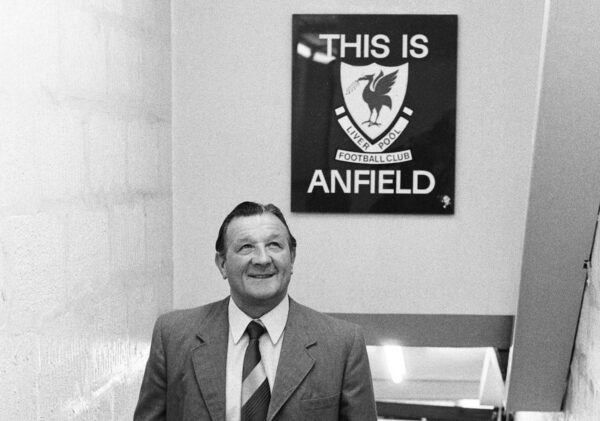
Manager: Bob Paisley
Captain: Phil Thompson
Top Scorer: David Johnson (27, all competitions)
Most Appearances: Kenny Dalglish, Phil Neal, Phil Thompson (60, all competitions)
League Position: 1st (60 points)
FA Cup: Semi-final
League Cup: Semi-final
European Cup: First round
Charity Shield: Winners
Total games: 60
Games won: 35
Games drawn: 15
Games lost: 10
Clean sheets – league: 19
Clean sheets – overall: 27
Total goals: 111
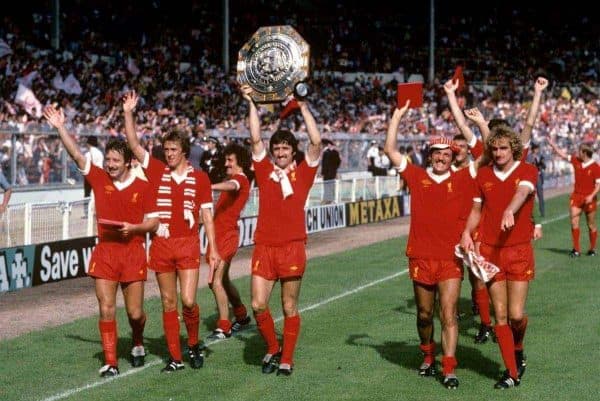

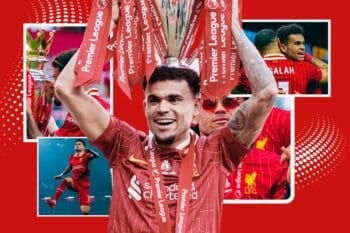
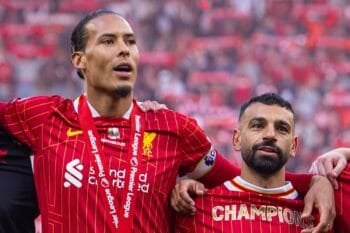

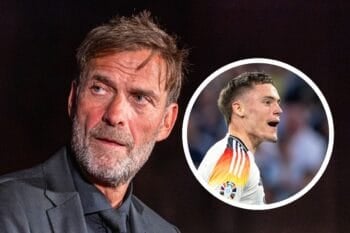
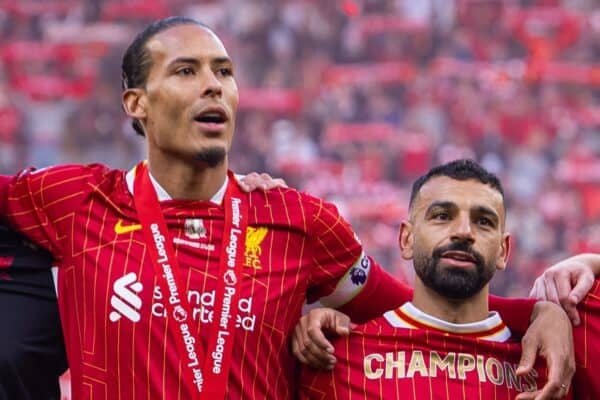
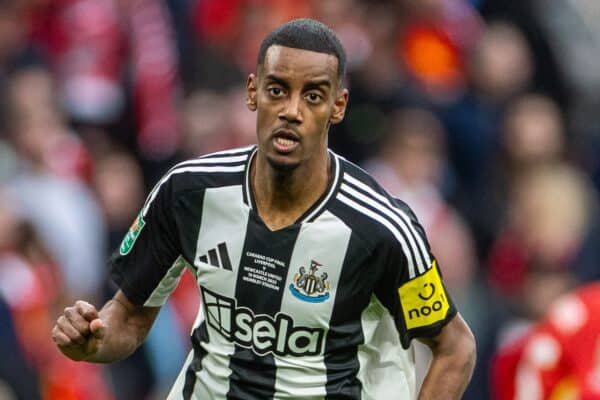
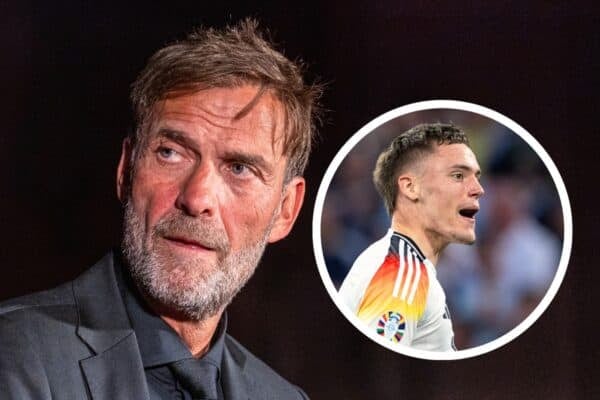
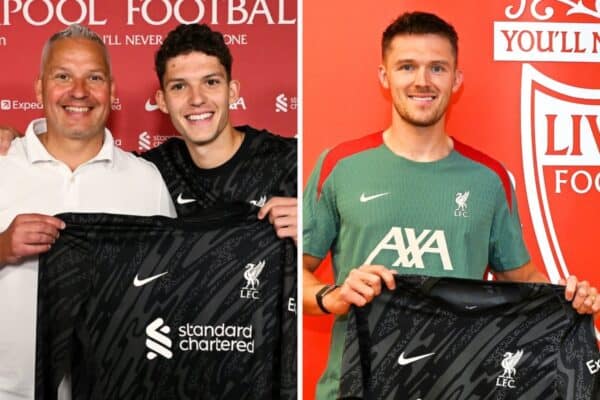
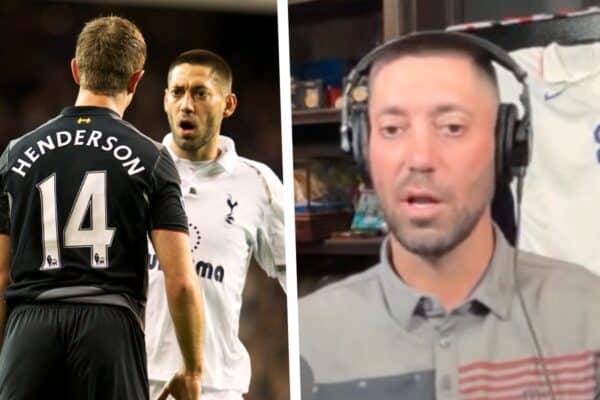
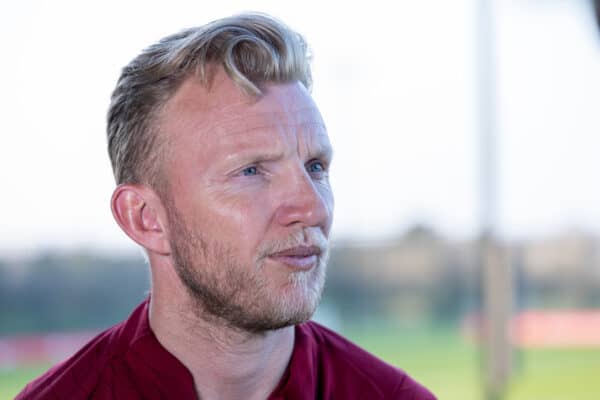
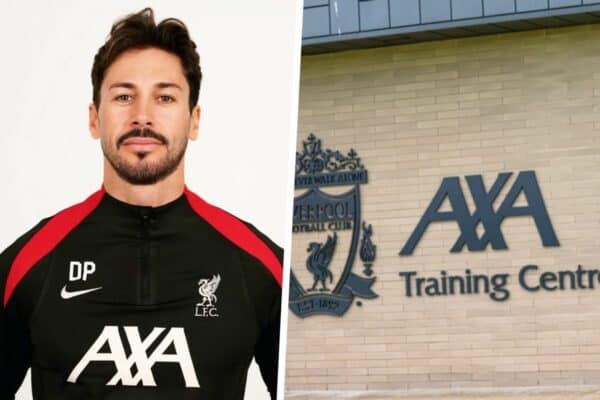
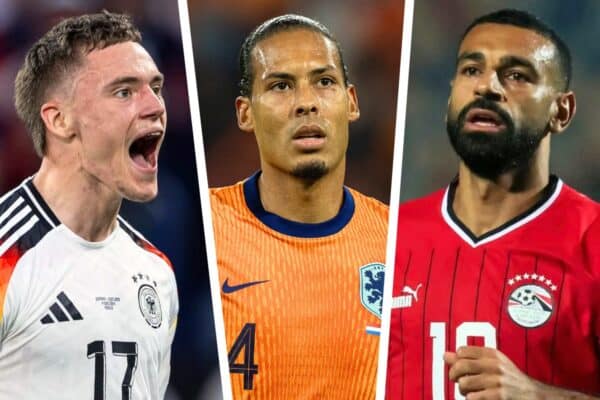
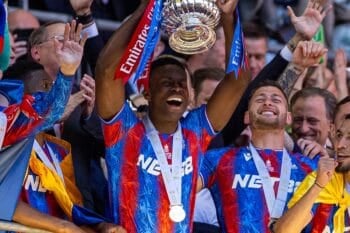
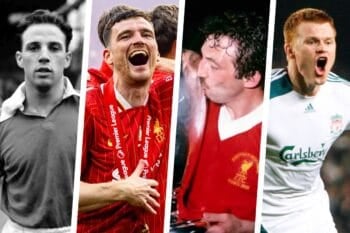
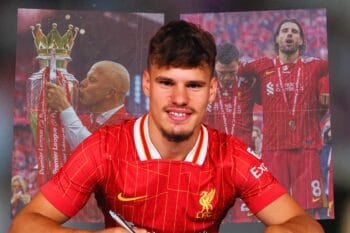
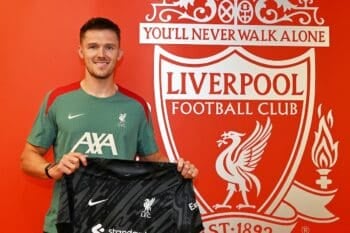
Fan Comments